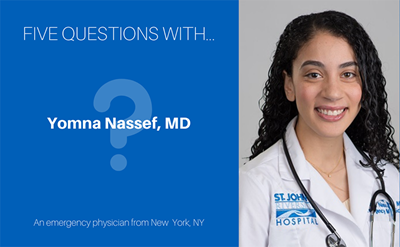Sarah brings her dad, George, to the Emergency Department after coming to his house this morning and finding him reading yesterday’s paper. George called her by her sister’s name, he had his slippers on the wrong feet. Sarah has been on the lookout for signs of memory troubles over recent years, but her dad was sharp and completely independent when she checked on him yesterday. What is going on with George?
What is delirium?
Delirium is a common disease among elderly patients. Those recovering from surgical procedures in a hospital or those in nursing homes are particularly at risk. Symptoms aren’t always obvious, so it is important for families and caregivers to know about – and talk about - identifying and addressing this disease.
Delirium is a sudden change in consciousness. Patients may show signs of confusion, decreased attention span, and changes in perception. Classically, symptoms wax and wane throughout the course of the illness and patients may have a lucid period where their cognition appears to return to normal.
Some patients could experience reduced environmental awareness, being easily distracted or increasingly withdrawn. Short term memory loss, disorientation or difficulty speaking may also occur.
Behavior changes such as restlessness or agitation may become evident. Hallucinations may occur. Emotional disturbances ranging from anxiety or depression to euphoria may be more pronounced.
Who is at risk?
Any elderly patient is at risk for delirium, but some conditions predispose patients to this illness. A history of dementia or delirium puts patients at risk. Older people living in long-term care facilities are, particularly at risk.
Depression and alcohol use are also risk factors. Hearing and visual impairments and the heavy burden of coping with multiple illnesses at the same time also increase the likelihood of delirium.
Does a diagnosis of delirium mean your aging family member is getting dementia?
Delirium and dementia are separate disease processes. Diagnosing delirium is critical as most cases are reversible, unlike dementia, which is a permanent decline in cognitive function.
Failing to identify delirium prolongs hospital stays, increases rates of placement into institutional care and raises the chance of death and disability in elderly patients.
Can delirium be prevented? What causes it?
Many different conditions can lead a patient to develop delirium. The regular use of greater than five medications is common amongst elderly patients and is a leading cause of delirium.
Fever or infections, like urinary tract infections and pneumonia, can also make a patient delirious.
Kidney dysfunction, uncontrolled blood sugars or liver failure are common culprits. Trauma or major surgery complications are frequently implicated in the development of delirium. Malnutrition, sleep deprivation, or severe emotional distress have also been known to cause delirium.
How does the doctor diagnose delirium?
Delirium cannot be diagnosed with bloodwork or radiologic images. It must be diagnosed clinically. Doctors do screening tests that involve a series of questions and tasks to look for the signs – confusion, decreased attention span, changes in perception or others.
Upon evaluation in the emergency department, George’s doctor realized he had a fever and signs of infection on blood work. His left foot had an infected wound that George hadn’t mentioned to his family or his doctor. After treatment, George’s mental status improved, and he was able to go home.
Sarah and George could easily be you, me or somebody that you know. Recovery often depends on the severity of the onset and a patient’s health status beforehand. People managing chronic or terminal illness may not get the cognitive skills back that they once had.
The best way to prevent delirium is to manage the risks that might cause the disease. Promoting good health and sleep habits is a strong start. Encouraging mobility when possible is beneficial and promptly addressing symptoms as they appear is important.
Nicole Cimino-Fiallos is an emergency physician with Carroll Hospital Center in Maryland.
As a loved one or caregiver, it is important to proactively discuss the symptoms, prevention, and treatment of delirium with senior citizens and their health care providers.
 American College of Emergency Physicians
American College of Emergency Physicians







